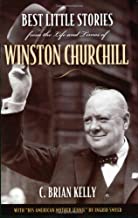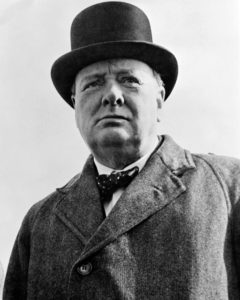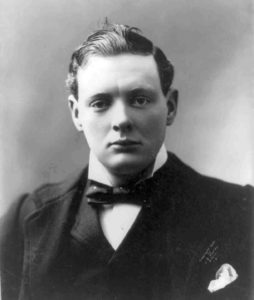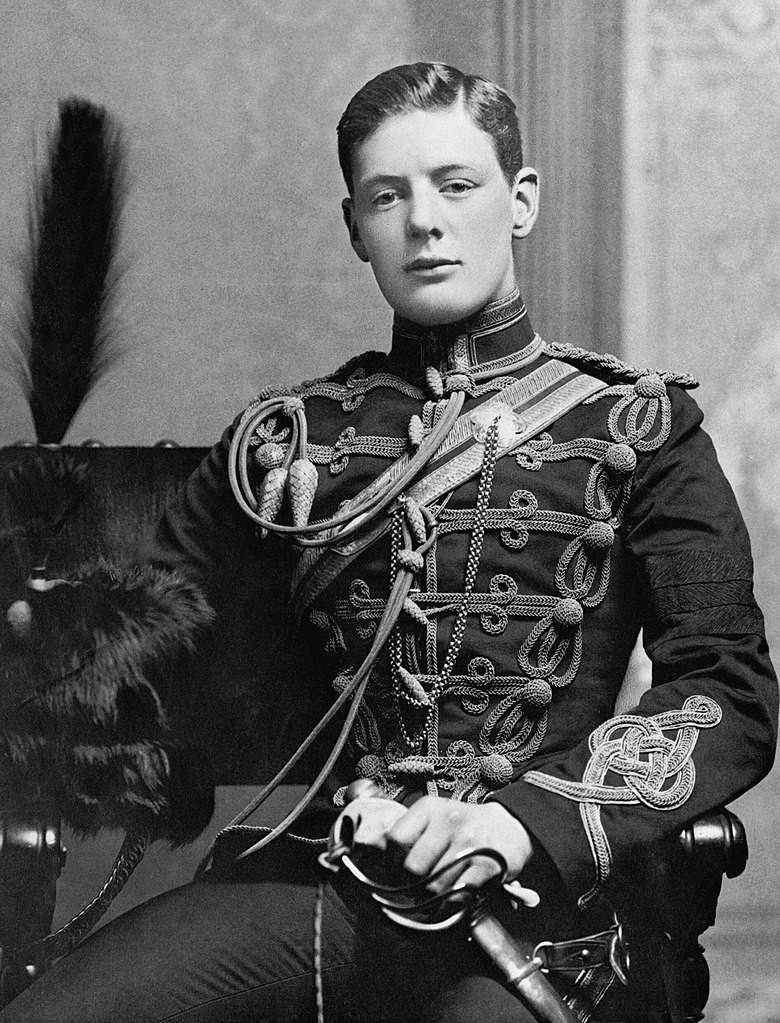Man of Action

 November 30 marks 145 years since Winston Churchill, British military leader and statesman, was born. C. Brian Kelly, Assistant Professor, Department of English in the College and Graduate School of Arts & Sciences at the University of Virginia, presents the daring, youthful side of Churchill in his article. Mr. Kelly teaches news writing at UVA and is author of Best Little Stories from the Life and Times of Winston Churchill with his wife, Ingrid Smyer, College ’81.
November 30 marks 145 years since Winston Churchill, British military leader and statesman, was born. C. Brian Kelly, Assistant Professor, Department of English in the College and Graduate School of Arts & Sciences at the University of Virginia, presents the daring, youthful side of Churchill in his article. Mr. Kelly teaches news writing at UVA and is author of Best Little Stories from the Life and Times of Winston Churchill with his wife, Ingrid Smyer, College ’81.
Man of Action
Just about anyone living today remembers Winston Churchill, in person or in a zillion photographs and ancient newsreels, as that historic figure of baby face and somewhat rotund build. That he was a magnificent orator everybody knows. He also was the great leader who, with some crucial help here and elsewhere, pulled Great Britain out of its World War II depths as the Allies marched to victory.

But young people, especially, may be forgiven for thinking that was it. Strictly an aging, desk-bound professional pol.
The more discerning may recall that, even so, he could be a determined, often ruthless leader who shrunk at destroying the French fleet in Northern Africa …but who did it anyway, to deny Nazi Germany the use of captured warships.
More often likely forgotten is the fact that once upon a time he was a handsome and lithe young man of action.
Once, as a teenager at play, he was adventurous enough to leap from a footbridge into the seemingly forgiving branches of a fir tree— only the branches were too flimsy to be forgiving. He regained consciousness three days later.

As a young man he was a cavalry soldier who relished being under fire. He took part in the great cavalry charge at Omdurman, but with a dislocated shoulder. He played polo, no game for sissies, into his 50s with that same dislocated shoulder. As a reporter covering the Boer War of the late 19th century, he couldn’t stomach being a neutral non-combatant at all costs and instead risked his life to help British soldiers trapped in a Boer ambush of their armored train. He helped get the wounded away but then went back on foot to join those left behind.
Captured at that point and sent to a makeshift Boer prison in the Transvaal capital of Pretoria, he went over the wall one night, walked boldly through the town and hopped a moving freight, intending to strike out for neutral Portuguese East Africa (today’s Mozambique) more than 200 miles away.
With a little help from fellow Brits who lived in the area and who smuggled him onto a second train, he made it to safety. But did he then retire from the war zone and accept deserved plaudits back home in Merrie Olde England? Not at all. Instead, he soon was out in the fighting zone again. His horse running away from him one day, he was spotted on foot and in the open by a mounted Boer patrol that immediately set off after him.
He escaped only by the grace of a British horseman who swooped him up into his saddle, and on they rode. Once they were safely away, sadly, it turned out their steed had been struck by an explosive Boer bullet. But they did elude the pursuing Boers.
In 1914, still early in World War I, it may also be recalled that Churchill, born 145 years ago this November 30, was a rather young member of the war cabinet as civilian head of the Admiralty, and yet there he was in Antwerp rallying the troops on the ramparts against an unstoppable German army.
In the spring of 1915, as once well known, he had been forced into resignation from H. H. Asquith’s war cabinet for having suggested the Gallipoli-Dardanelles attack on Turkey that then was badly fumbled by those in charge of executing the plan. Out of political office, Churchill, being Churchill, would not be left standing still for very long.

He joined the British Tommies fighting the Huns on the Western Front, where he escaped a German artillery barrage that directly struck his dugout one day, killing one man and wounding others. By war’s end, true, he had rejoined the ranks of the politicians and government ministers, but even in his subsequent political career he often was a risk-taker.
In addition to all else, it might also be recalled, he in essence made his living as a free-lance writer (talk about risk!) who won the Nobel Prize for literature.
- Musings on National Violin Day
- Making the Promise Real: How a UN Tax Convention Can Fulfill the UNDHR’s Vision
- Having a Drink With Your Donkey: The Absurd in Antiquity
- UVA Club of Atlanta: Virtual Pilates Class
- UVA Club of Fairfield/Westchester: Cavs Care - Food Pantry Donation Drive
- UVA Club of Phoenix: Hoo-liday Party